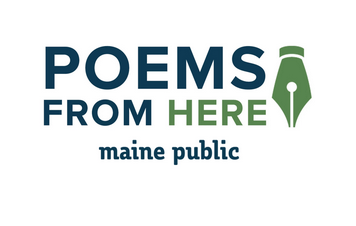Jefferson’s prose poem, “House of Revision,” was published in Unbroken issue #41.
Richard Foerster Review in The Cafe Review
Jefferson reviewed Richard Foerster’s new book, “With Little Light and Sometimes None at All,” (Littoral Books 2023) in the Winter 2024 issue of The Cafe Review.
It’s tender, but quietly powerful, and even thrilling to read. By the end, I could almost hear the roar of a crowd when the poet urges the left hand to “Take up your pen. / It is the tiller.”
THE GLACIER
Jefferson’s flash fiction, “The Mayor of Mexico,” appeared in issue #2 of THE GLACIER. There are many excellent writers in this issue!
Review of Marbles on the Floor in the American Poetry Review
Jefferson’s review of Marbles on the Floor: How to Assemble a Book of Poems (eds. Sarah Giragosian and Virginia Konchan; University of Akron Press) was published in the January/February 2024 issue of the American Poetry Review:
This is a book that will not only help the aspiring first-time poet, but also the veteran poet who, after multiple books of poetry, yet again wonders to themself, “How the fuck am I going to do this?
Poetry porfolio with an introduction by Virginia Konchan in Tupelo Quarterly 31
Tupelo Quarterly 31 published a five-poem portfolio of Jefferson’s poems with an introduction by Virginia Konchan:
Navicky is alive to the contradictions between what is and what could be, or could have been; his narrative imagination, borrowing from Borges, sees the infinity and infinite potential within everyday people, situations, objects, and relationships. These poems, a bildungsroman in verse, ground us in the material world, while awakening us to the magnetic connections between words, and in so doing, he evinces his gifts as both storyteller and bard, of unimagined places, yes, but also our memories of youth and young, tender, selves: a nested story within a story revealed as ripe to be mined, to be seen otherwise, felt, and believed.
Finalist for The Hole in the Head's Charles Simic Prize
Jefferson was honored to be one of five finalists for The Hole in the Head Review's Charles Simic Prize for these three poems along with a slew of other incredible poets including second-place winner Betsy Sholl, Gibson Fay-LeBlanc, Jeri Theriault, Claire Milliken, Richard Foerster, S. Stephanie, and Mark DeCartaret. Many thanks to The Hole in the Head Review and editor Bill Schulz.
Interview with Mike Bove
Jefferson interviewed his friend and fellow poet Mike Bove about Mike’s new book EYE for the Fall issue of The Hole in the Head Review. In response to how Mike managed to write EYE over the course of the last snow storm of 2023, he said:
"And yes, the whole experience was a lot of effort but also very liberating. There’s so much play in this book, even if much of the subject matter is serious. I look back at those five days and I’m amazed I wrote so much. And I did other things too! I took walks with my family, took my boys skiing with my brother, even attended your book launch that weekend. I also shoveled the driveway more times than I can remember. But in every other moment I was writing. That’s what I was thinking with 'This Poem Isn't Going to Write Itself.' A common stereotype is that the muse visits and the work just pours out, as if the writer is simply a conduit for the universe’s magic. I always thought that made it sound so passive, when for me writing has always been active. Even when it comes easily, it’s still the product of years of active practice."
Interview with Miho Nonaka
Jefferson interviewed poet and translator Miho Nonaka about prose poems for the fall 2023 issue of The Cafe Review.
“Perhaps we have this tacit expectation that a proper poem must arrive at some form of insight or even transcendence. That is a lot of pressure. You shouldn’t worry whether your poem is going to take off or not when you first start drafting. Poetic ambition can be deadly in the beginning stage of creation. The prose poem is a great entrance into writing, because its down–to–earth, even unpoetic appearance takes some of the pressure off and makes us start playing with words right there and then. We can stay our quotidian selves and still be ecstatic. And who knows, one day, we might find ourselves flying, one way or another.” — Miho Nonaka
HIBRO reviewed in The Cafe Review
Poet Amanda Dettmann reviewed Head of Island Beautification for the Rural Outlands in the Fall 2023 issue of The Cafe Review.
“These persona prose poems push us to imperfectly observe and participate in the ancient sounds of ocean life within a backdrop of family secrets and unanswered silences. With grief disguised as a “good sauce,” Navicky bends time between the living and the dead like a crab listening to the hum of her ancestors through her own seaweed–slicked shell.”
Poems from Here on Maine Public
Jefferson’s poem “Moon Review at the Emergency Vet” appeared on Maine Public’s Poems from Here series read by Maine Poet Laureate Julia Bouwsma. The poem originally appeared in Southern Humanities Review.












